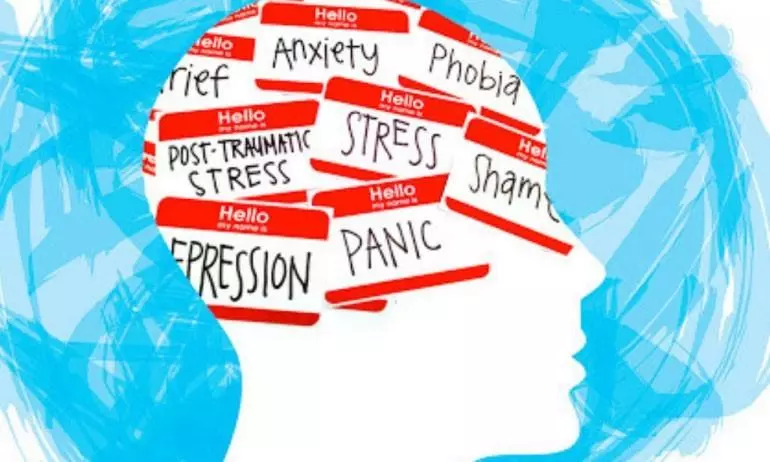
Pulling Through a Broken Mental Health System During a Pandemic
text_fieldsArjun Azad is pursuing his masters in Law at Azim Premji University. With the shift to remote learning and connectivity issues that ensued, he was forced to stay up late night to work on his thesis which went on for weeks. He started having sleep-related issues soon enough. Arjun had contacts who enabled him to get help via phone and a good mental health support system from university and elsewhere. He fears that wouldn't be true for all of Kerala.
As per a recent survey from the World Health Organization covering 130 countries, access to mental health services has been disrupted in 93% countries while the need for it has only increased.
"The onset of the pandemic has seen the deterioration of mental health. The reasons for this range from being cooped up at home, disturbed routine, financial problems, family issues, isolation etc," notes Dr Sreya Salim, who pursues MD in psychiatry at Trivandrum Medical College.
The disruption of services hits vulnerable age groups, including children, adolescents, the elderly, and women the most. In Kerala, 66 children have committed suicide ever since the lockdown on 24th March.
"...Current child suicides give an insight into how stress from home is a significant contributing factor. The unavailability of schools wherein children communicate with peers and resolve issues in their capacities and issues like boredom, lack of pleasure activities, interpersonal issues with family, lack of routine serve as contributing factors," says Dr Smitha C, psychiatry faculty at Calicut Medical College.
"With the onset of virtual classes, the lack of accessibility to devices is a major cause of stress in children from lower economic backgrounds. It not only affects their studies but also makes them feel left out and not up to the mark," Smitha adds.
Though the number of children and elderly seeking out mental health services at hospitals have gone down, teleconsultation caters to such patients. "If anybody hears them out for five minutes, it gives them hope," says Sreya. The penetration of these services in remote areas is yet to be assessed.
WHO notes that many countries have only invested less than 2% of their annual health budgets to mental health even before the pandemic. In India, the national mental health program is chronically underfunded with a meagre 0.06% set aside from the annual health budget of 69000 crores. In Kerala, the state budget allotted 17.6 crore rupees of the total 1530 crores for mental health programs.





















